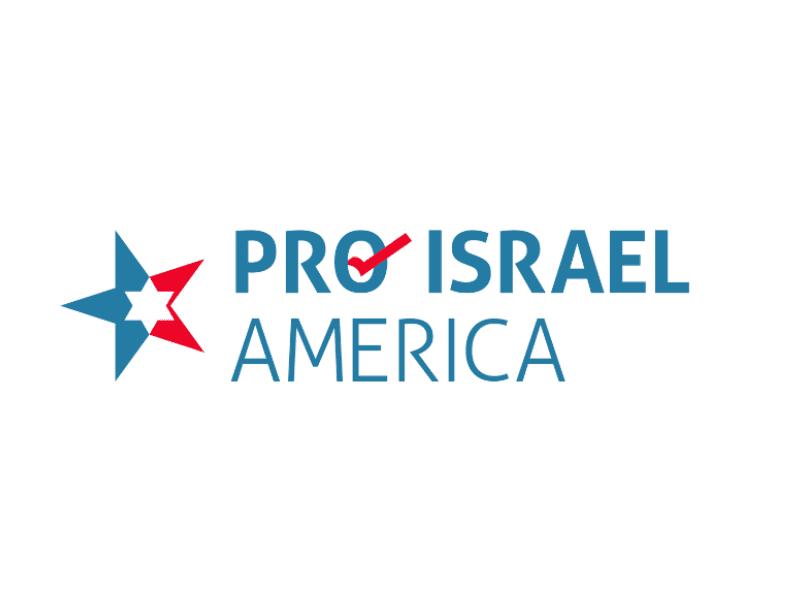By Matthew Kassel | February 7, 2024
Marking its first independent expenditure of the 2024 election cycle, the super PAC affiliated with AIPAC is targeting a California state senator, Dave Min, who is one of the top Democratic candidates in an increasingly nasty House race for an open swing seat in Orange County.
On Tuesday, United Democracy Project, a leading pro-Israel super PAC, kicked off a $600,000 TV ad buy hitting Min for a DUI arrest last May, Patrick Dorton, a spokesperson for the group, confirmed to Jewish Insider.
“Dave Min wants your trust, but Min was arrested for drunk driving, putting us all at risk,” the ad’s narrator intones over body cam footage of the police stop, before claiming that “Min asked the officers to hide the truth. Trust Dave Min? Not on your life.”
UDP is additionally dropping nearly $50,000 on mailers highlighting the drunk driving arrest, for which Min has expressed regret. The incident has also featured prominently in attacks from Min’s chief primary opponent, Joanna Weiss, an attorney and Democratic activist recently backed by a separate pro-Israel group.
Even as the attack ads are not focused on Middle East policy, the new campaign from UDP has raised questions over Min’s approach to Israel, which has not been a public source of contention in the race to succeed Rep. Katie Porter (D-CA), who is now running for the Senate.
Dorton declined to comment on the motivations behind the ad buy.
But Min’s campaign manager, Dan Driscoll, attributed UDP’s salvo to tensions between Min and AIPAC donors over the candidate’s opposition to West Bank settlement expansion as well as his criticism of Israeli Prime Minister Benjamin Netanyahu.
“Despite State Sen. Min’s support of Israel, and a broad coalition of endorsements from the Jewish community, a number of Republican donors at AIPAC are upset that he has called for Bibi Netanyahu to be held accountable for the security failures on Oct. 7 and Netanyahu’s failure of leadership during this crisis,” Driscoll said in a statement shared with JI on Tuesday. “Sen. Min does not believe in the annexation of West Bank settlements, he had hoped that a constructive dialogue could be had. It appears they disagreed.”
The UDP attack took Min’s campaign largely by surprise, according to a Min campaign source who asked to remain anonymous to discuss private conversations. The campaign felt it had met with AIPAC in good faith and had not voiced support for any policies outside the Democratic mainstream, the source explained.
In a follow-up conversation between Min’s team and AIPAC leadership on Tuesday, the source said, the group also cited Min’s association with J Street, the progressive Israel advocacy organization that is frequently at odds with AIPAC, as a deal-breaker.
Min was endorsed by J Street during a previous House bid in 2018 but has not yet won the group’s backing in his current campaign.
“He’s engaged and not given them any surprises,” the source said of Min’s conversations with AIPAC.
Marshall Wittmann, a spokesperson for AIPAC, declined to comment, referring questions on the race to UDP.
Tali DeGroot, J Street’s national political director, said the group has not “issued any endorsements” in the race, adding that it has “spoken at length to both campaigns.”
The new ads were also a source of confusion among Jewish Democrats in California who are backing Min, including Scott Weiner, a prominent progressive state senator from San Francisco and co-chair of the Legislative Jewish Caucus. “I’ve endorsed Dave and I continue to strongly support him,” he told JI in a phone call on Tuesday. “In my experience, he is an ally to the Jewish community.”
According to two people familiar with the matter, a group of Jewish state legislators who have endorsed Min are preparing to issue a statement reaffirming their support for his campaign and clarifying that they view him as pro-Israel as well as an ally to the Jewish community.
In addition to local legislators, Min has also won endorsements from a handful of AIPAC-aligned House members, including Reps. Grace Meng (D-NY) and Kevin Mullin (D-CA), whose primary campaign last cycle was boosted by UDP.
It remains unclear if Weiss, Min’s Democratic rival, will officially gain backing from AIPAC, which has only endorsed one non-incumbent this cycle, even if its opposition to Min seems likely to help her bid.
A spokesperson for Weiss’ campaign did not respond to a request for comment on Tuesday.
Weiss, for her part, has notched support from pro-Israel lawmakers, including Reps. Eric Swalwell (D-CA) and Lois Frankel (D-FL), and EMILY’s List, which has invested heavily in the race.
On paper, the two candidates, who are locked in fierce competition in the top-two open primary early next month, seem largely aligned on key issues concerning Israel. Both have refrained from backing calls for a cease-fire, for instance, and voiced support for continued U.S. aid to Israel.
In a candidate questionnaire recently solicited by a pro-Israel group in California, Min wrote that, if elected, he “would support the continuation of our strong and close alliance with Israel, including the provision of military and financial support to ensure that Israel retains a quantitative military edge over its potential adversaries in the region.”
While he endorsed “the general principle that all U.S. military aid to our allies should be used in support of our American values, including respect for human rights and compliance with U.S. and international law,” Min added, “I would oppose conditions on our aid that were specifically and uniquely targeted at Israel or seemed politically driven.”
Even as his positions are broadly in tune with the pro-Israel community, however, Min clarified in the questionnaire, which was reviewed by JI, that he did not “anticipate being on the front lines of any foreign policy issues, including those related to Israel and the Middle East.”
By contrast, Weiss appeared to have expressed greater interest in taking a more active role on international affairs. “The U.S. is a leader on the international stage to help promote democracies across the globe,” she wrote in a questionnaire solicited by a local newspaper last month, adding that the U.S. “must continue to stand by our strategic partners, including Ukraine and Israel, to protect democracies across the world and to fight against tyranny and terrorism.”
Weiss’ campaign site includes a section on fighting antisemitism, noting that she “was proud to receive the Anti-Defamation League’s Marcus J. Kaufman Jurisprudence Award” in 2020.
Robin Gurien, a Jewish community activist in Orange County, expressed satisfaction with both candidates’ approaches to Israel. “I’ve had conversations with both Dave Min and Joanna Weiss shortly after the Oct. 7 massacre,” she told JI in an email on Tuesday. “Both of them impressed me as gravely concerned for the brutality of the murders. Both condemned Hamas for the attack.”
Still, Weiss has been received with more enthusiasm by the national pro-Israel community. Last week, for example, she won an endorsement from Pro-Israel America, an advocacy group that recently relaunched under new leadership.
“In my conversations with Joanna she has been clear about her deep connection with the Jewish people and Israel and her strong desire to strengthen the U.S.-Israel relationship in Congress,” Samantha Garelick, PIA’s executive director, said in a statement to JI.
While Garelick voiced confidence that Weiss “will be a strong champion of the U.S.-Israel alliance” if elected to Congress, she cautioned that Min “has been less willing to engage.”


